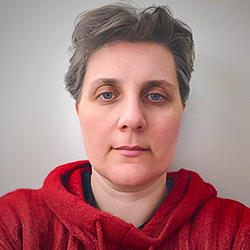If you’d like to participate in a CNO committee, now’s the time! Applications are now open. We have vacancies for five RNs and six RPNs, and nurses from all practice areas are encouraged to apply.
The committees are Discipline and Fitness to Practise; Inquiries, Complaints and Reports; Quality Assurance; and Registration. Nurses who serve on these committees use their nursing knowledge and insights to make objective and evidence-informed decisions that contribute to safe nursing practice in these specific areas.
Why apply?

Patricia Nowicka-Bujko, RPN
Because you’ll be making a difference for patients by contributing to the processes that help keep them safe. Past and present members say it’s incredibly rewarding.
Patricia Nowicka-Bujko, RPN, is a member of the Discipline and Fitness to Practise committee. She says it brings her “a sense of pride
to be able to help and use my nursing experience to make this profession safer for the public.” You can read more about Nowicka-Bujko’s experience in an article from the August issue of The Standard.
Committee members say the work they do is professionally rewarding, too. “It is an excellent opportunity,” Priscilla Ankamah, RN, told us in 2021. “You work with others from diverse backgrounds and develop new sets of skills around leadership. In addition, you gain a profound understanding of the legislative and regulatory laws that govern the profession and develop a deeper appreciation for CNO and its processes.”
Who can apply?
Any nurse with a passion for patient safety. Nurses from all practice areas and with all levels of experience sit on our committees. No previous committee experience is necessary.
What is necessary is an understanding of the standards and how a nurse’s practice, behaviour and health impacts patient safety.

Priscilla Ankamah, RN
You should have experience acting in patients’ best interests and be able to communicate clearly. This video series will teach you more about our expectations for committee members, and the kinds of attributes you should have.
Be assured that CNO will thoroughly orient you to the new role. Ankamah says that “the whole onboarding process at the beginning was very valuable, as it made me feel better prepared to succeed versus being rushed into the role unprepared.”
What do the committees do?
Each committee is a little bit different. Some meet to review written information and make important decisions in individual matters, such as whether a nurse may have a health issue that impacts their ability to provide safe nursing care. Others hold hearings that address concerns about a nurse’s conduct or health, and make decisions based on evidence presented at hearings.
Every committee makes their decisions in the public’s interest, to ensure that the people of Ontario have access to safe nursing care.
Learn more about each of the committees on our Committee page. Interested in applying? Watch our video series and visit our CNO Committee page to learn more and start your application.